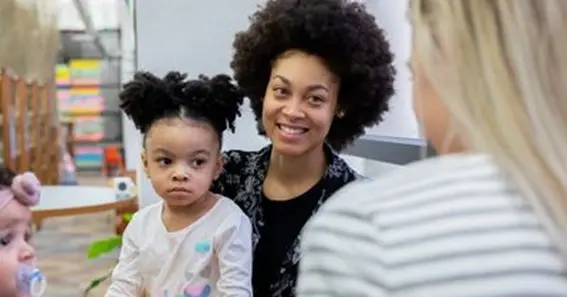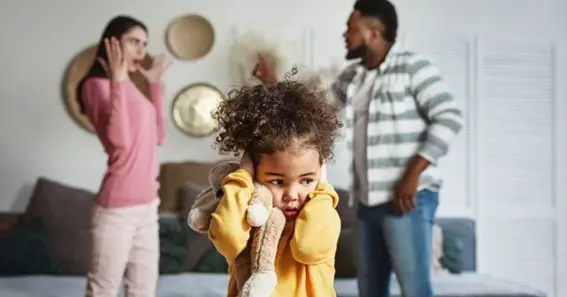What is a reunification camp? Family reunification camps are significant for repairing the broken ties between parents who have grown apart from their children. Lawmakers and mental health professionals often suggest these camps. Here in this post what is a reunification camp we will try to learn more about the topic.
What Is A Reunification Camp?
Reunification camps are unique places where parents and children who have grown apart can reunite. Mental health professionals work at these camps and use therapeutic methods to help people deal with and heal the emotional scars that isolation causes. Many things, like fights between parents, divorce, or false claims, can cause a child to be wrongly cut off from one parent.
This is called alienation. The point of a reunion camp is to help parents and children talk to each other, trust each other, and form a good bond in a safe place. Court orders can force people to participate, and the program’s length and format can change based on each person’s needs.
Now after reading the above para about what is a reunification camp readers would know more about this content.
Process Of Reunification Camps

Parental and child therapy, joint therapy sessions, and games meant to rebuild the parent-child bond are just some therapeutic services offered by reunification camps. The camps have a controlled setting where therapists can closely watch how the family interacts and help them heal. They help couples get better through organized therapy and planned activities. But their methods and how well they work are sometimes questioned. This article goes into detail about what reunification camps are, how they work, and what part they play in the process of reuniting.
This controlled environment helps to keep outside influences and distractions to a minimum so that the parent and child can focus on rebuilding their relationship. Let us know the process in detail of what is a reunification camp.
Tests And Admission
The first step in the reunion camp process is an in-depth evaluation of both the kid and the parent who has been separated. Psychologists and social workers specializing in family therapy and child psychology are doing this evaluation. They check to see the kind of estrangement, how the child feels, and whether the parent is ready to join the program. The assessment includes talking to the parents, giving psychology tests, and sometimes just watching the parents and child interact.
With this evaluation, we hope to learn more about the family’s position and figure out what problems need to be dealt with during the camp. That way, the therapy can be better fit to the family’s specific needs, and the methods used will be effective and suitable. The results are used to make a personalized treatment plan that spells out the steps and goals for the reunion process.
Interventions For Therapy

Once accepted, volunteers participate in a variety of therapeutic methods meant to address the root causes of alienation and help people heal. During these interventions, experienced therapists lead the child and parent through solo therapy sessions, joint therapy sessions, and group exercises.
The main goal of individual treatment is to give both the child and the parent a safe space to talk about their feelings and thoughts. This could mean talking to the child about their feelings of anger, confusion, or humiliation. It may also mean that the parent has to examine their feelings and come up with ways to help their child heal.
Activities With Rules
Besides therapy, reunion camps often have planned activities that help the parent and child connect and interact well. These tasks encourage trust, teamwork, and conversation. Adventures outside, arts and crafts projects, and games that require teamwork and problem-solving are all examples of organized activities. During these activities, the parent and child can talk to each other in a fun and relaxed way, which helps them get along again outside of therapy.
These tasks can help the parent and kid learn how to work together, help each other, and have fun, which can be very important for getting back together. Structured tasks are also a way to use the skills people learn in therapy. Outdoor activities like hikes or sports can help the parent and child learn to work together as a team.
Ongoing Help At Camp
After the camp, ongoing help is significant to keep the growth going. This help could come in the form of ongoing treatment, support groups, or regular check-ins with mental health experts. Following up with help is meant to build on the progress made at camp and deal with any new problems that may come up.
Meeting with mental health workers regularly lets them keep an eye on the family’s progress and act quickly if any problems appear. When you combine treatment, support groups, and regular tracking, you get a complete support system that can help families succeed in their long-term reunification journey.
Conclusion
Post-reading this article about what is a Reunification camp and how it works. Reunification camps give parents and children who have grown apart a structured and loving place to rebuild their ties. Even though their methods might work sometimes, it’s important to remember that every family is different and that the child’s best interests should always come first. To make sure that these kinds of treatments are helpful and that they fit each person’s needs, it is essential to work together with mental health workers. Reunification camps can help families heal and move on together by treating the emotional wounds caused by being apart and encouraging positive interactions.
FAQ
What Are Reunion Camps Mainly Used For?
To help parents who have lost touch with their kids get back together by using therapy and planned activities.
Who Controls The Process Of Reuniting People At These Camps?
Therapists, counselors, and mental health professionals organize and manage therapy.
Do Courts Order Reunion Camps?
In some cases, no. The judges or mental health workers may suggest them based on the family’s needs.
What Kinds Of Events Are There At Reunion Camps?
Camps offer therapy workshops, team-building activities, and fun activities that help kids get to know and talk to each other.
Do People Need More Help After Going To A Reunion Camp?
Yes, ongoing help is significant for continuing to make progress and dealing with any new problems that arise after camp.
How Much Is The Success Ratio In The Reunification Camp?
The success ratio here is 82.7%
Sources:
https://www.romper.com/life/what-are-reunification-camps-documentary
https://www.alienationindustry.com/reunification-camp
We have covered all the below topics in the above article
Family reunification
Refugee camp
Displaced families
Humanitarian aid










